13 Best Herbal Creams For Tendinitis
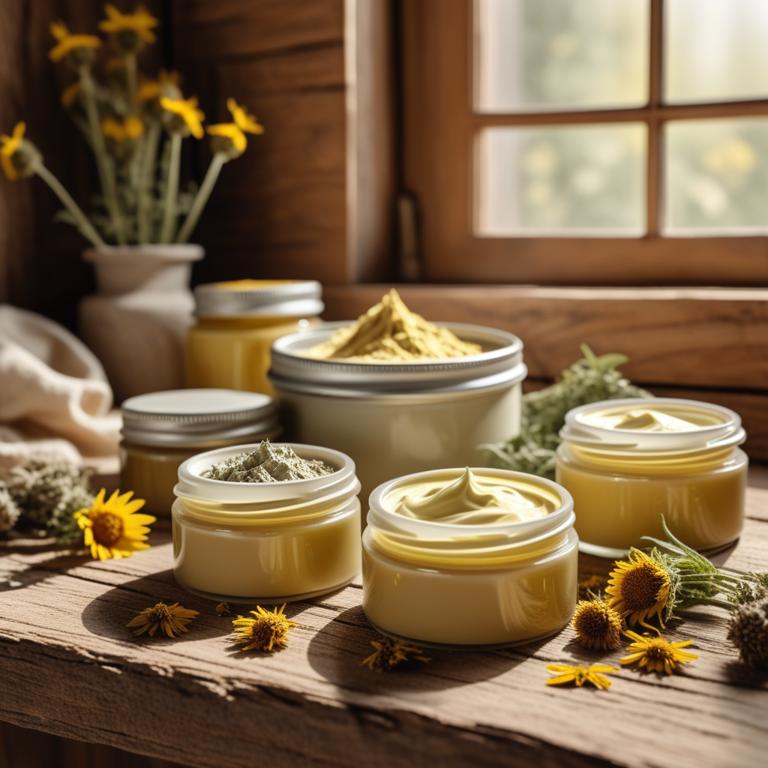
Herbal creams for Tendinitis are topical ointments infused with various herbs and plant extracts that are designed to reduce inflammation and alleviate pain associated with the condition.
These creams offer several benefits, including reducing inflammation, promoting relaxation, and improving circulation, making them an effective alternative to traditional treatments.
Examples of herbal creams used to treat tendinitis include arnica creams, which contain arnica montana to reduce inflammation and pain, turmeric creams, which contain curcumin to combat inflammation, and capsaicin creams, which contain capsaicin to block pain signals.
Additionally, other herbal creams used to treat tendinitis include ginger creams, which contain gingerols to reduce inflammation and pain, peppermint creams, which contain menthol to relax muscles, and chamomile creams, which contain apigenin to promote relaxation and reduce stress.
According to "International immunopharmacology", creams for tendinitis containing noscapine, a natural compound with anti-inflammatory and anti-fibrotic properties, may be beneficial in treating tendinopathies by reducing pain, fibrosis, and inflammation.
Below there's a list of the 13 best herbal creams for tendinitis.
- 1. Symphytum officinale creams
- 2. Arnica montana creams
- 3. Lavandula angustifolia creams
- 4. Melissa officinalis creams
- 5. Salvia officinalis creams
- 6. Urtica dioica creams
- 7. Capsicum annuum creams
- 8. Lavandula latifolia creams
- 9. Mentha x piperita creams
- 10. Rosmarinus officinalis creams
- 11. Zingiber officinale creams
- 12. Crocus sativus creams
- 13. Panax ginseng creams
Also you may be interested in...
TODAY'S FREE BOUNDLE
Herb Drying Checklist + Herbal Tea Shopping List + Medicinal Herbs Flashcards
Enter you best email address below to receive this bundle (3 product valued $19.95) for FREE + exclusive access to The Aphotecary Letter.
$19.95 -> $0.00
1. Symphytum officinale creams
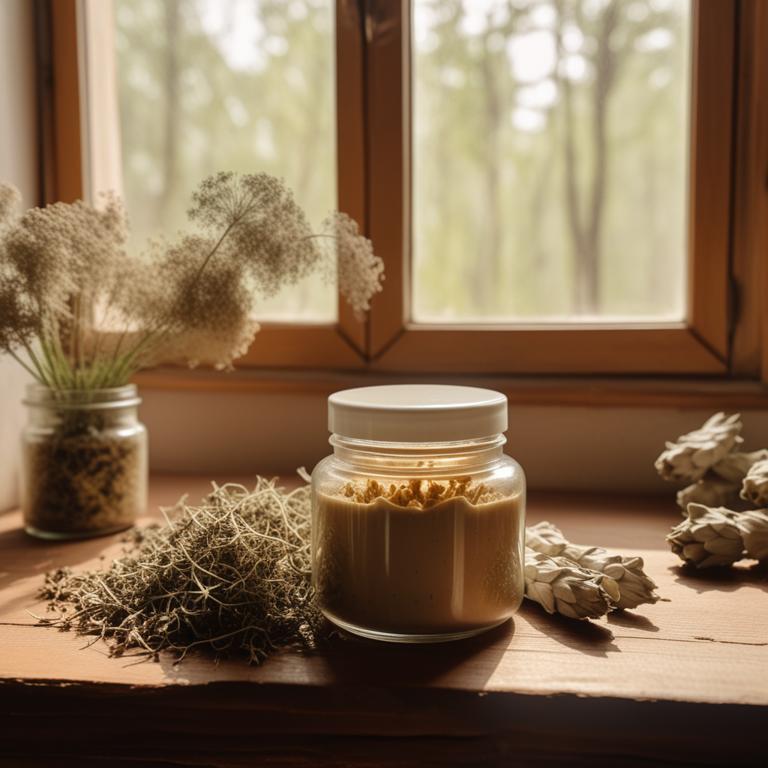
Symphytum officinale creams have been traditionally used to treat tendinitis, a condition characterized by inflammation and pain in the tendons, due to their anti-inflammatory, analgesic, and healing properties.
The bioactive constituents present in these creams, including allantoin, mucilage, and phenolic acids, help to reduce inflammation, promote tissue repair, and alleviate pain associated with tendinitis.
By applying Symphytum officinale creams directly to the affected area, the mucilaginous properties of the herb help to soothe and protect the skin, while the allantoin and phenolic acids work to stimulate cellular regeneration and reduce inflammation.
The benefits of using Symphytum officinale creams to treat tendinitis include reduced pain and inflammation, improved mobility, and accelerated healing, making them a popular natural remedy for this common condition.
Related Study
According to "Chemistry & biodiversity", Symphytum officinale creams have been found to have wound-healing properties, which may also be beneficial for treating tendinitis.
2. Arnica montana creams
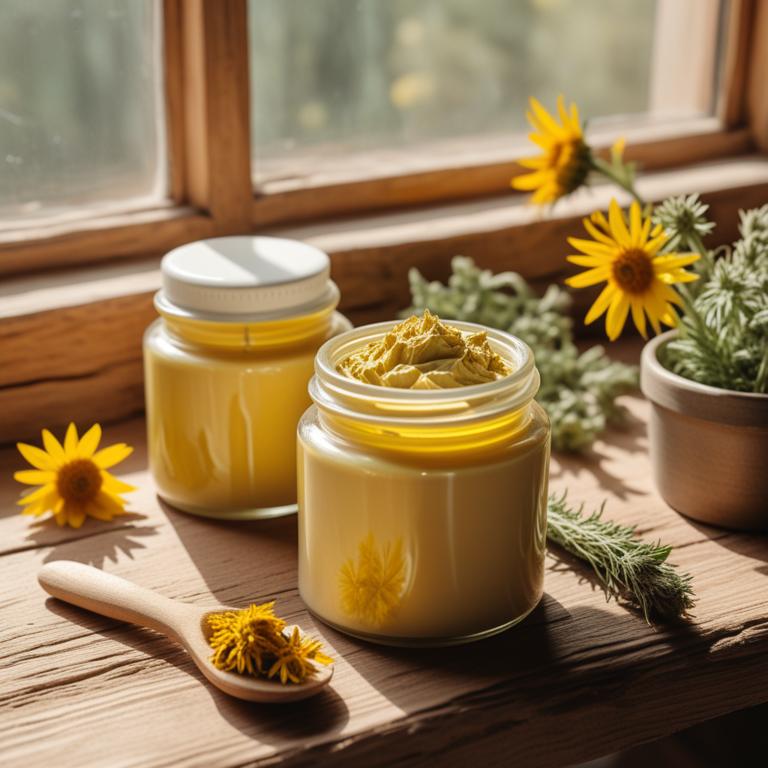
Arnica montana creams have been used for centuries to treat tendinitis, a common ailment characterized by inflammation and pain in the tendons.
The herbal preparation's anti-inflammatory and antiseptic properties help to reduce swelling and promote healing, making it an effective treatment for tendinitis.
The bioactive constituents of Arnica montana, including sesquiterpene lactones and flavonoids, have been shown to inhibit the production of pro-inflammatory enzymes and cytokines, thereby reducing pain and inflammation.
Regular use of Arnica montana creams has been found to provide relief from tendinitis symptoms, promote tissue repair, and improve joint mobility, making it a popular natural remedy for this condition.
3. Lavandula angustifolia creams
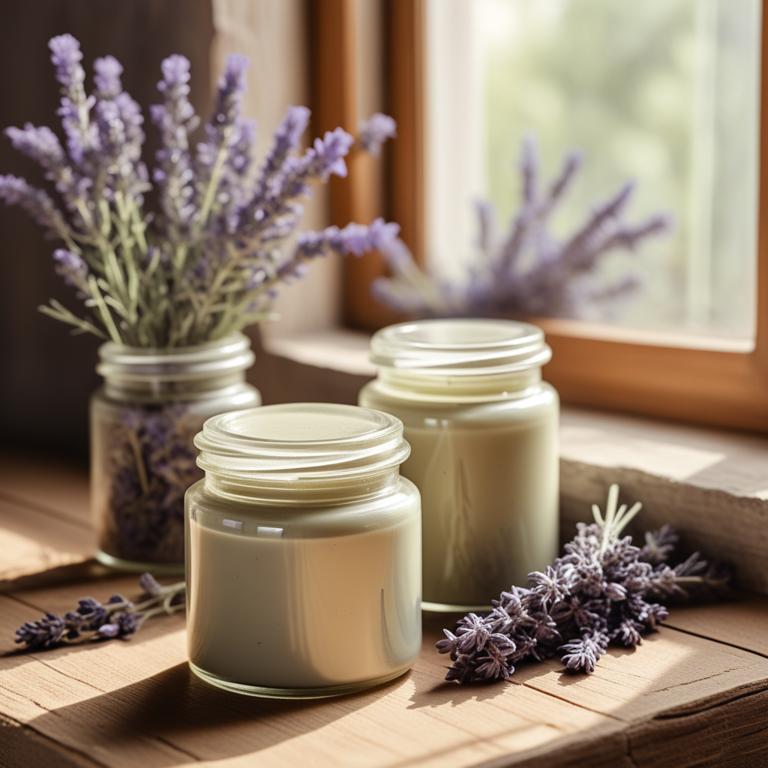
Lavandula angustifolia creams have been traditionally used to treat tendinitis, a common condition characterized by inflammation and pain in the tendons.
The anti-inflammatory and antiseptic properties of Lavandula angustifolia creams help to reduce swelling and promote healing in the affected area, thereby alleviating symptoms of tendinitis.
The bioactive constituents of Lavandula angustifolia, including linalool and linalyl acetate, exhibit potent anti-inflammatory and antioxidant activities, which contribute to their analgesic and anti-inflammatory effects in treating tendinitis.
By using Lavandula angustifolia creams, individuals can experience benefits such as reduced pain, improved joint mobility, and accelerated recovery from tendinitis.
4. Melissa officinalis creams
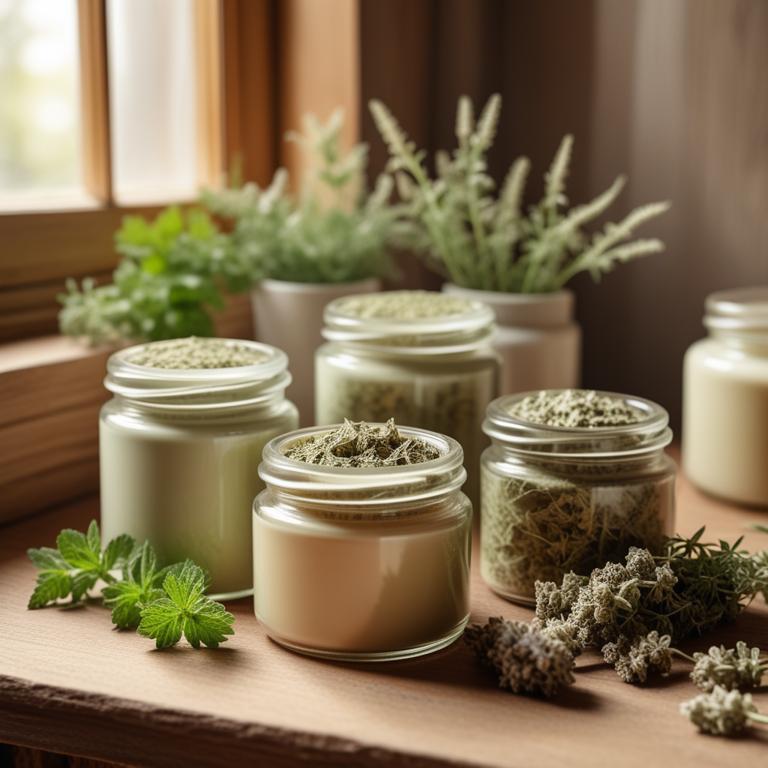
Melissa officinalis creams have been traditionally used to treat tendinitis due to their anti-inflammatory and analgesic properties, which help to reduce pain and swelling associated with the condition.
The bioactive constituents present in Melissa officinalis, such as linalool and rosmarinic acid, contribute to its therapeutic effects by inhibiting the production of pro-inflammatory enzymes and promoting relaxation of muscle spasms.
By applying Melissa officinalis creams topically, individuals can experience relief from tendinitis symptoms, including reduced pain and improved range of motion.
The benefits of using Melissa officinalis creams to treat tendinitis include natural and non-invasive pain management, reduced risk of side effects, and improved overall well-being.
5. Salvia officinalis creams
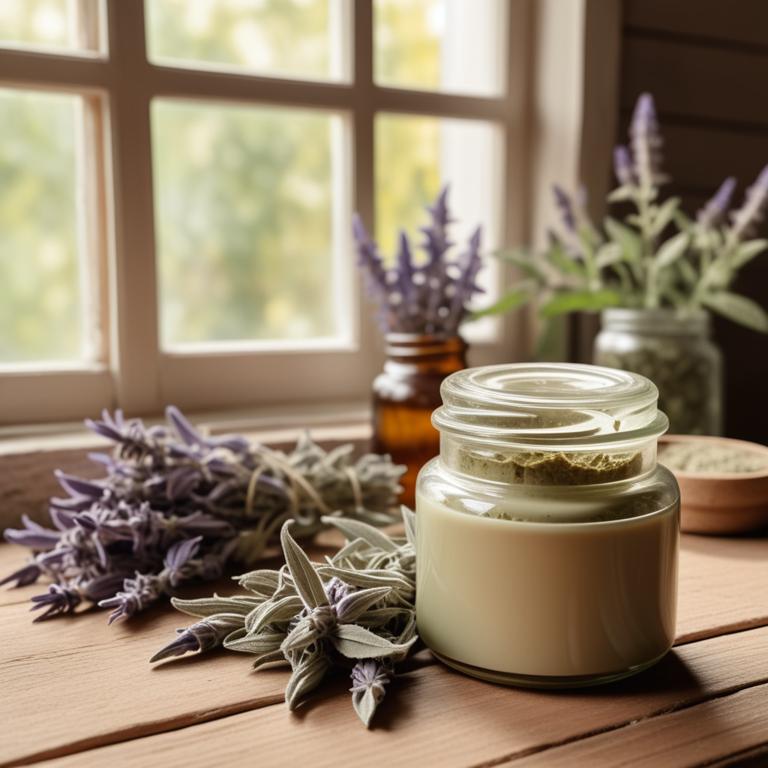
Salvia officinalis creams have been gaining attention for their potential to treat tendinitis, a common condition characterized by inflammation and pain in the tendons.
The anti-inflammatory properties of Salvia officinalis creams, which are attributed to the presence of rosmarinic acid and other bioactive constituents, help to reduce swelling and alleviate pain in the affected areas.
By inhibiting the production of pro-inflammatory enzymes and modulating the immune response, these creams promote healing and reduce inflammation, ultimately providing relief from tendinitis symptoms.
The benefits of using Salvia officinalis creams to treat tendinitis include reduced pain, improved range of motion, and accelerated recovery, making them a promising natural remedy for this condition.
6. Urtica dioica creams
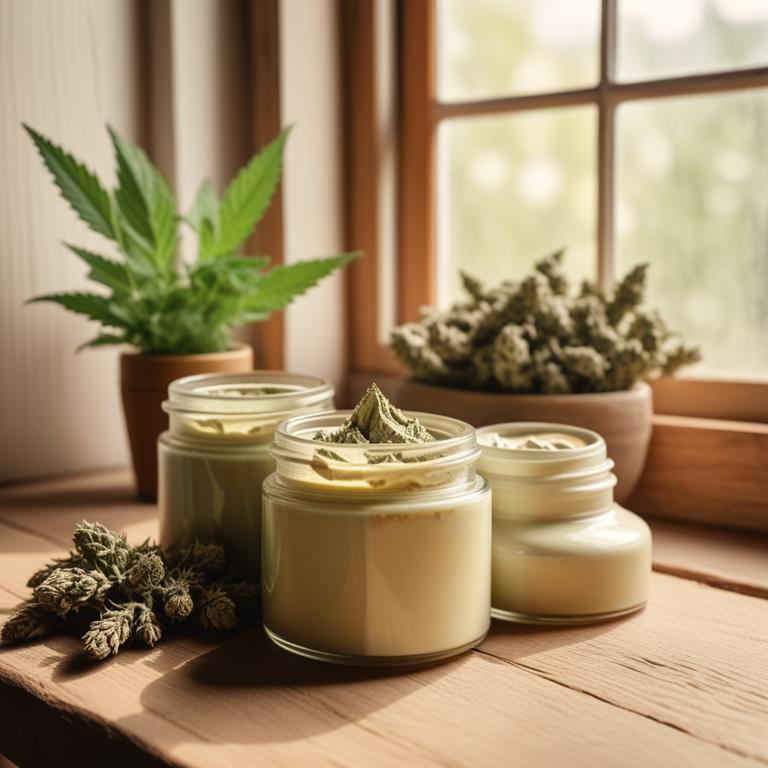
Urtica dioica creams, derived from the leaves of the stinging nettle plant, have been used to treat tendinitis, a common condition characterized by inflammation and pain in the tendons.
The anti-inflammatory and analgesic properties of these creams help to reduce swelling and ease pain, making them a popular natural remedy for this ailment.
The bioactive constituents of Urtica dioica creams, including flavonoids, saponins, and phenolic acids, contribute to their therapeutic effects by inhibiting pro-inflammatory enzymes and promoting tissue repair.
By using Urtica dioica creams, individuals can experience relief from tendinitis symptoms, improve joint mobility, and reduce the risk of chronic inflammation and tissue damage.
7. Capsicum annuum creams
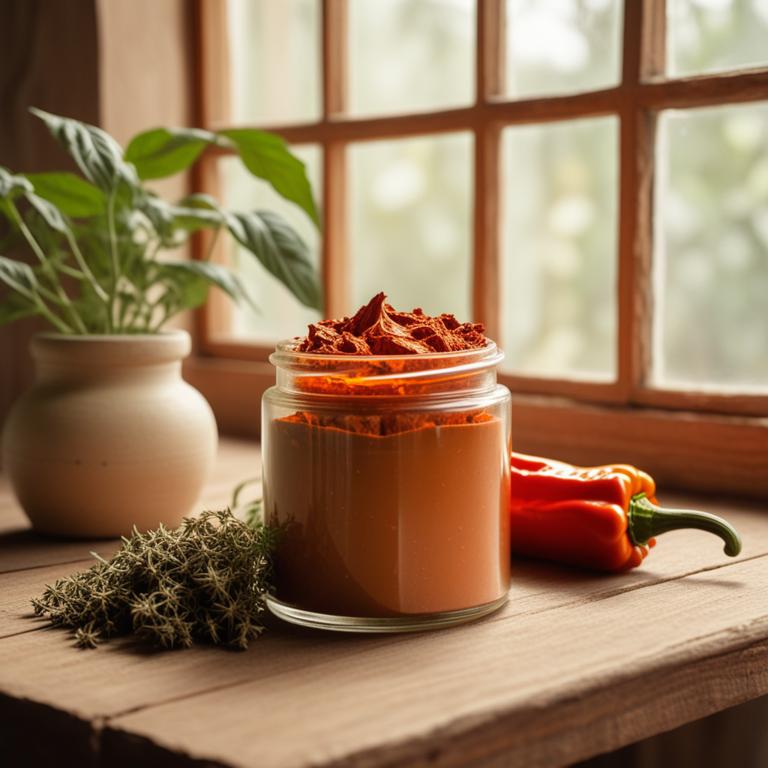
Capsicum annuum creams, derived from the sweet pepper plant, have been used to treat tendinitis due to their anti-inflammatory and analgesic properties.
The creams help to reduce pain and inflammation in the affected area, promoting healing and relaxation.
The bioactive constituents of Capsicum annuum creams, including capsaicin, flavonoids, and carotenoids, work together to inhibit the production of pro-inflammatory enzymes and block pain receptors, thus alleviating tendinitis symptoms.
Regular use of Capsicum annuum creams can provide relief from tendinitis, reduce muscle spasms, and promote overall well-being, making it a beneficial treatment option for this common ailment.
8. Lavandula latifolia creams

Lavandula latifolia creams have been traditionally used to treat tendinitis due to their anti-inflammatory and analgesic properties, which help to reduce pain and swelling in the affected area.
The bioactive constituents of Lavandula latifolia, including linalool and linalyl acetate, exhibit a synergistic effect in reducing inflammation and promoting healing, thereby alleviating the symptoms of tendinitis.
These creams also possess a soothing and calming effect on the skin, which helps to reduce stress and promote relaxation, further contributing to the treatment of tendinitis.
The benefits of using Lavandula latifolia creams to treat tendinitis include reduced pain and inflammation, improved range of motion, and a faster recovery time, making it a popular natural remedy for this common ailment.
9. Mentha x piperita creams
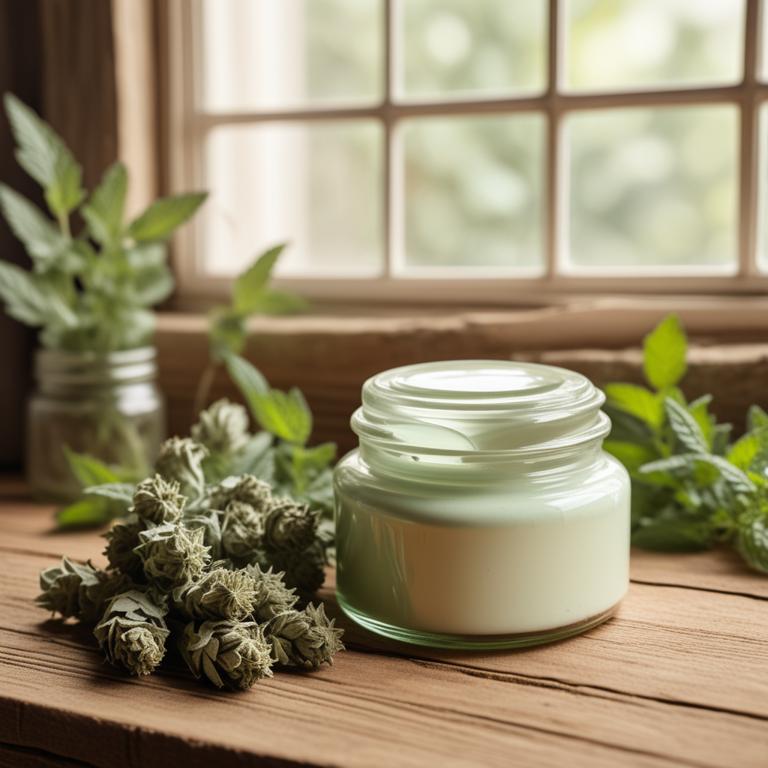
Mentha x piperita creams, derived from the essential oil of peppermint, have been used to treat tendinitis, a common inflammatory condition affecting the tendons.
The anti-inflammatory and analgesic properties of Mentha x piperita creams help to alleviate pain and reduce swelling associated with tendinitis.
The bioactive constituents, including menthol and menthone, present in these creams, inhibit the production of pro-inflammatory enzymes, thereby reducing inflammation and promoting healing.
The benefits of using Mentha x piperita creams to treat tendinitis include reduced pain and inflammation, improved mobility, and faster recovery, making it a valuable herbal remedy for managing this condition.
10. Rosmarinus officinalis creams
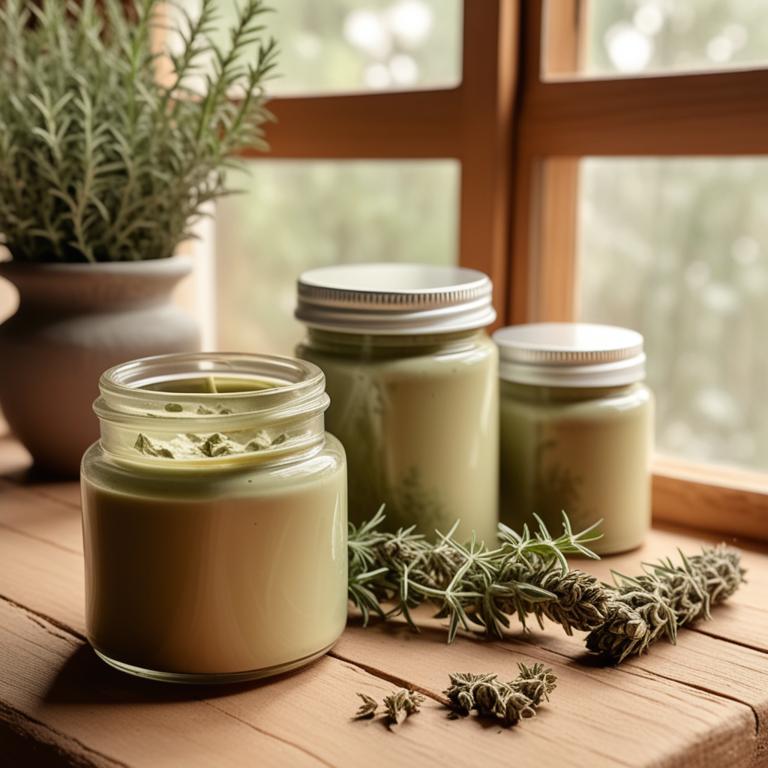
Rosmarinus officinalis creams, derived from the herb rosemary, have been traditionally used to treat tendinitis, an inflammatory condition affecting the tendons.
The anti-inflammatory and antioxidant properties of this herbal preparation help to reduce pain and inflammation, promoting healing and relaxation in affected areas.
The bioactive constituents, including camphor, borneol, and caffeic acid, contribute to its therapeutic effects by inhibiting the production of pro-inflammatory enzymes and reducing oxidative stress.
By using Rosmarinus officinalis creams, individuals can benefit from reduced pain and inflammation, improved joint mobility, and enhanced overall well-being.
11. Zingiber officinale creams
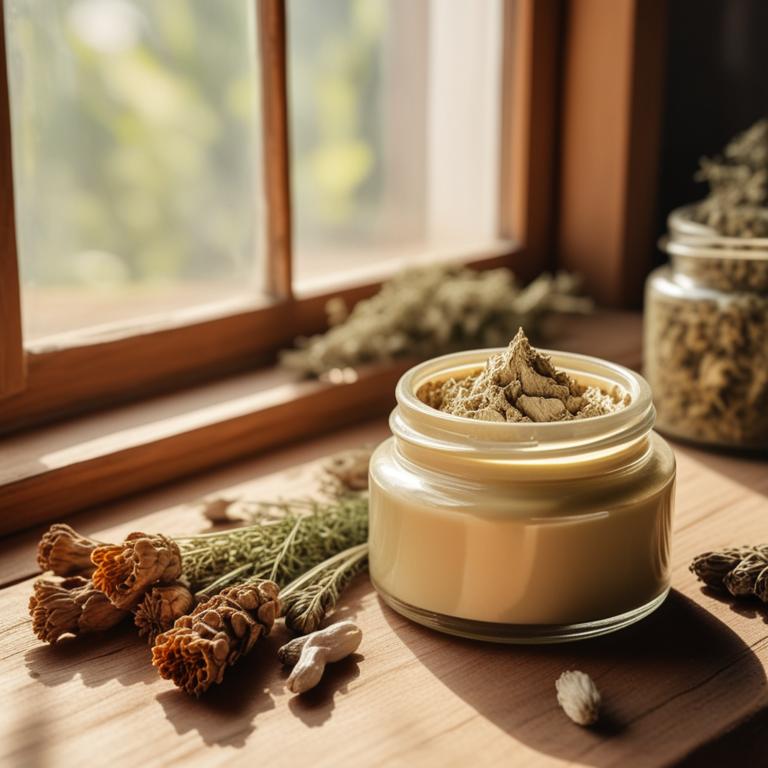
Zingiber officinale creams, derived from the popular spice turmeric, have been found to effectively treat tendinitis, a common ailment characterized by inflammation and pain in the tendons.
The anti-inflammatory properties of this herbal preparation, particularly its high content of curcumin, a potent bioactive constituent, help to reduce pain and inflammation in the affected areas.
Curcumin, a polyphenol compound, inhibits the production of pro-inflammatory enzymes and cytokines, thereby alleviating the symptoms of tendinitis.
The benefits of using Zingiber officinale creams to treat tendinitis include reduced pain, improved joint mobility, and accelerated recovery, making it a popular natural remedy for this condition.
12. Crocus sativus creams

Crocus sativus creams have been traditionally used to treat tendinitis, an inflammatory condition affecting the tendons, due to their anti-inflammatory and analgesic properties.
The bioactive constituents of Crocus sativus, including crocin and safranal, help to reduce inflammation and pain by inhibiting the production of pro-inflammatory enzymes and mediators.
These herbal preparations work by decreasing swelling and pain in the affected area, thereby facilitating the healing process and improving mobility.
The benefits of using Crocus sativus creams to treat tendinitis include reduced pain and inflammation, improved range of motion, and accelerated recovery, making them a popular natural remedy for this common ailment.
13. Panax ginseng creams
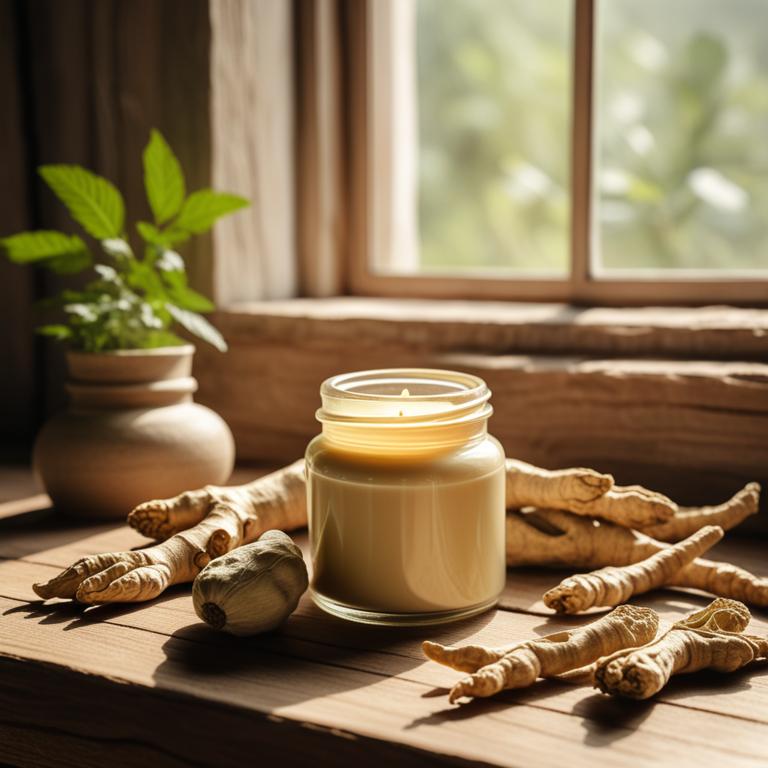
Panax ginseng creams have been used to treat tendinitis, an ailment characterized by inflammation and pain in the tendons.
The anti-inflammatory and antioxidant properties of Panax ginseng creams help to reduce swelling and alleviate pain, providing relief from the discomfort associated with tendinitis.
The bioactive constituents of Panax ginseng creams, including ginsenosides and saponins, have been shown to exhibit anti-inflammatory and analgesic effects, which contribute to their therapeutic benefits in treating tendinitis.
By reducing inflammation and pain, Panax ginseng creams offer a natural and effective approach to managing the symptoms of tendinitis, promoting faster recovery and improved mobility.